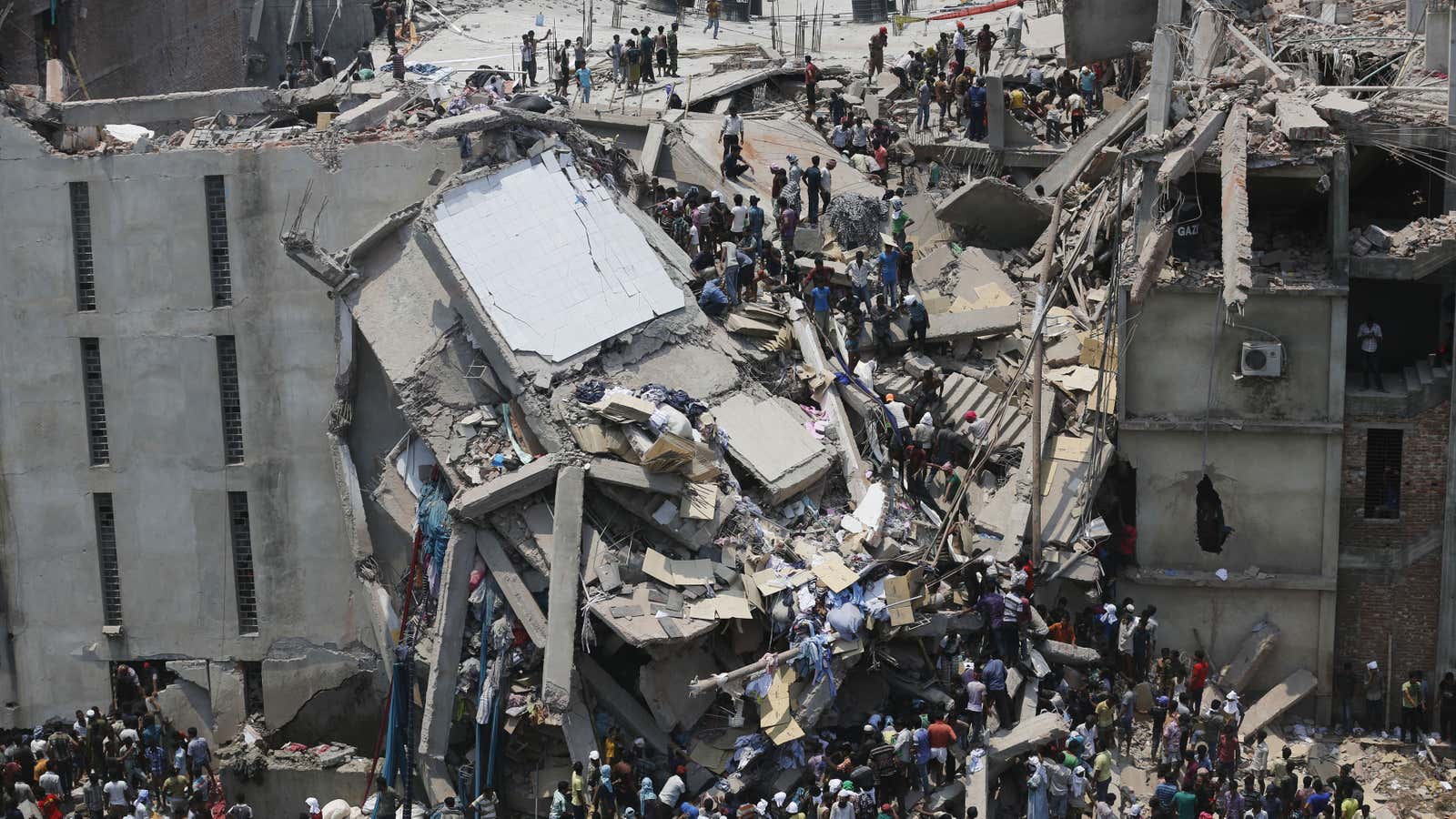More than three years after the Rana Plaza factory collapse that killed 1,134 people, Bangladesh is still trying to hold those responsible accountable for their actions.
Reuters reports that a court in the country has officially charged 38 people with murder in connection with the accident, the deadliest industrial disaster in Bangladesh’s history. The main person accused is Mohammad Sohel Rana, owner of the large, multilevel complex who has been described as a mafioso-like figure and who was arrested apparently trying to escape into India during a four-day manhunt after the collapse. Three people were also charged with helping Rana in his attempt to flee.
Public prosecutor Abdul Mannan told Reuters that 35 of the total 41 charged appeared in court. All plead not guilty. Many of the accused absconded before their arrest, and six remain fugitives. They will be tried in absentia. (The AP reports that 34 defendants appeared in court and seven have yet to be caught.)
Those accused of murder could face the death penalty if convicted. A police report submitted to the court described the deaths as a “mass killing,” according to the AP.
Investigators from Bangladesh’s Criminal Investigation Department said the charges had been changed to murder, from the culpable homicide charges that were initially recommended. Their investigation into the collapse revealed that Rana and other factory bosses forced workers to enter the building, even though the workers were concerned over cracks in the foundation that shook the building (paywall), which was shoddily and illegally constructed, the day before.
The tragedy has become symbolic of the problems of Bangladesh’s garment industry, which accounts for more than 80% of Bangladesh’s exports and is notorious for some of the lowest wages in the world. The building housed five factories producing clothes for numerous contractors, including prominent international brands such as Primark, Benetton, and Walmart. Many factories remain unsafe, even as international coalitions have worked to reform the industry.
Survivors of the tragedy have previously expressed frustration that charges were so long coming. “I wanted punishment of the culprits, I wanted justice,” Mili Khatun, a survivor of the collapse who lost her husband, told the New York Times last year. “I have doubts that the culprits will be punished.”
The trial for Rana and the others accused is set to begin on Sept. 18.
